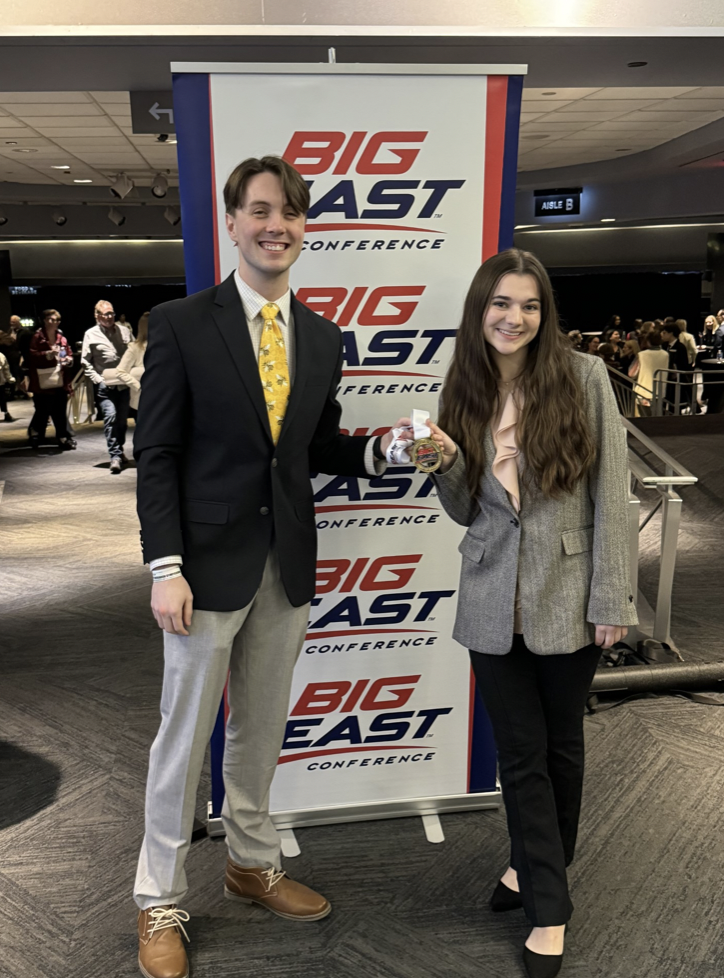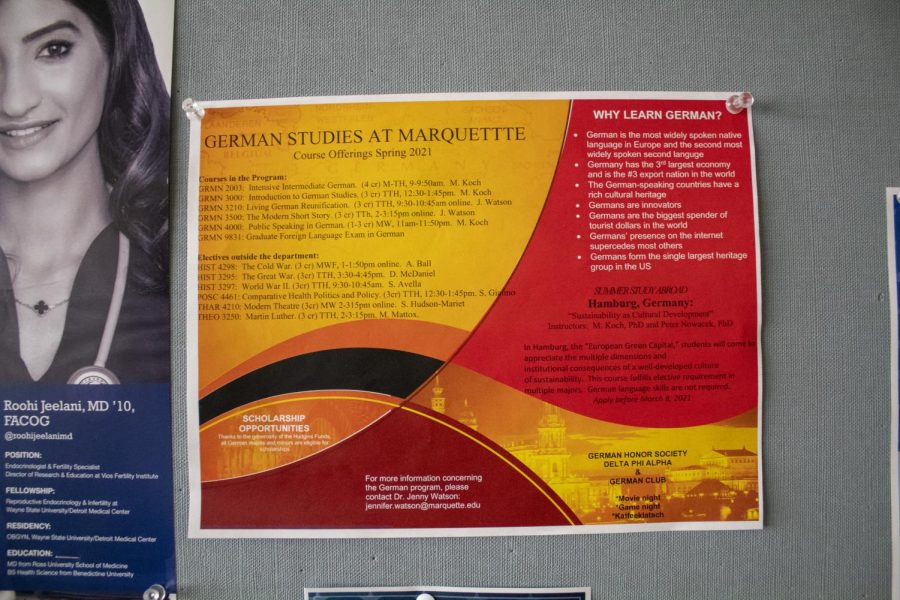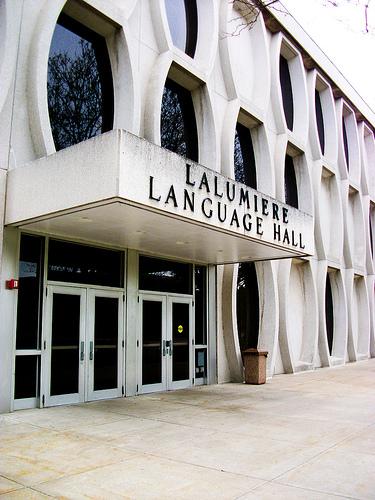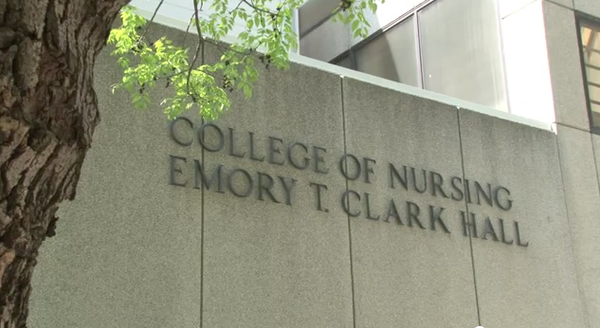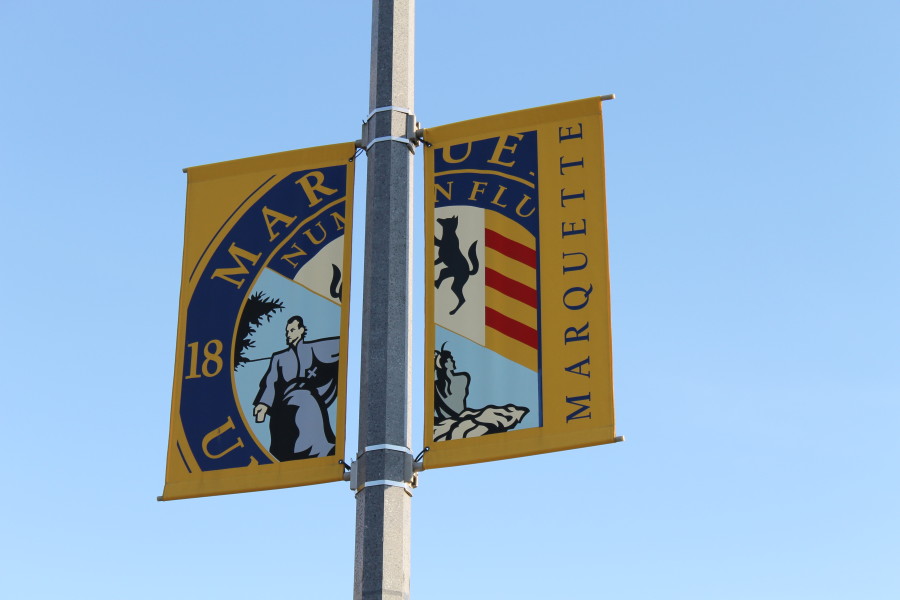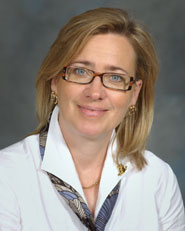
Wednesday marked the first of four visits from the candidates for the College of Arts & Sciences’ dean position. The first candidate to arrive on campus was Patricia Okker, a faculty fellow in the Office of the Provost and professor of English at the University of Missouri.
Phillip Naylor, the chair of the dean search committee and a professor of history, opened the presentation by introducing both Okker and the format of the search.
“The search has been an enriching experience,” Naylor said. “We as a committee have met many impressive professors. Today, we start introducing you to dean finalists. Our guests over the next two weeks will address the role of the arts and sciences at a Catholic, Jesuit university in the 21st century.”
Once introduced, Okker explained the difficulty of addressing the role of arts and sciences in just twenty minutes, which each candidate will be asked to do.
“What I do want to do today is to emphasize three particular themes that I think are particularly relevant to the future of this college,” Okker said. “All three of them suggest the need to balance the challenge and opportunity of building on a very rich tradition and at the same time responding to new things and developments in higher education in innovative and creative ways.”
The first of the themes that Okker outlined was interdisciplinary study. This would allow for more unique courses, Okker said, suggesting that Marquette embrace more “co-teaching” of classes. Okker said this would involve different professors with varying areas of expertise working together to create course material.
“Maybe a class on heart disease,” Okker said. “If there is a course on that kind of topic, the faculty members would largely be learning along with the students. If I were in that classroom, I wouldn’t exactly know where the statistician is going to go or where the cellular biologist is going to take me. The classroom is going to be a place of creating knowledge.”
The second of the themes was to develop students as global citizens. Okker explained that students need to have interreligious dialogue due to the many conflicts across the world involving religion.
“If I’m imagining an ideal world in which we are pursuing peace and achieving peace, I can’t imagine getting there without having leaders who have that skill in interreligious dialogue,” Okker said.
The last of the themes is what Okker called “an engaged pedagogy.” She elaborated on that ideal, saying students need to be encouraged to obtain many internships but also reflect well on them. The reflection period would allow students to understand what they wish to do following graduation, she said.
Following Okker’s presentation, there was an open forum in which the finalist answered questions. Christine Krueger, a professor of English and a former chair of the Academic Senate, said she hopes the new dean will be a strong leader.
“I think what the college desperately needs is leadership and advocacy,” Krueger said. “We need someone to make a case in the university generally for what it is we do. And, frankly, to play hardball.”
The three other finalists will be visiting Marquette throughout the next week. Check back with the Tribune for continuing coverage on each of the forums.
Marc Muskavitch, a professor of biology at Boston College and an adjunct professor at Harvard University, will be on campus for his forum on Friday, Jan. 25 at 4 p.m in the Raynor Memorial Libraries Beaumier Conference Room.
Erik Herron, associate chair and professor of political science at the University of Kansas, will be hosted on Tuesday, Jan. 29 at 4 p.m. in AMU Ballroom B.
Richard Holz, an associate dean and professor of chemistry at Loyola University Chicago, will be hosted on Thursday, Jan. 31 at 4 p.m. in AMU room 227.

